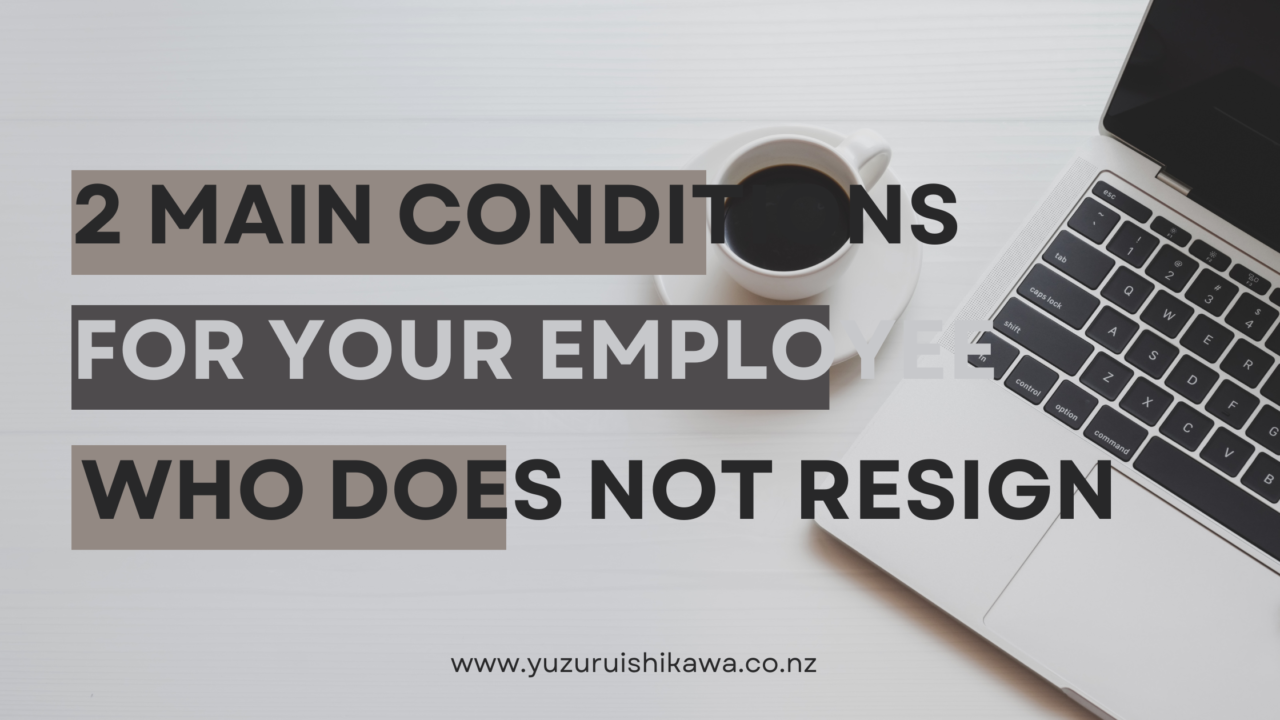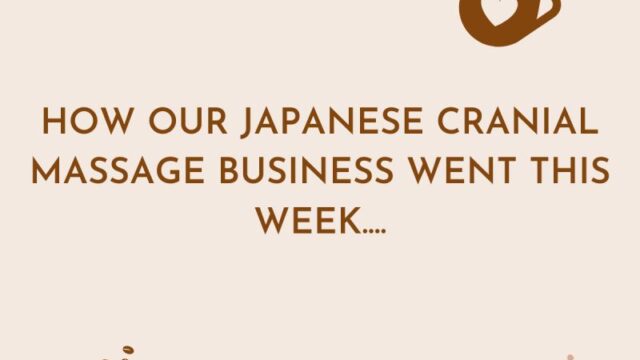Imagine the kind of staff that stays and works long-term at your local business without resigning.
That staff member stays because they think:
“I’ve never considered being self-employed, and I want to continue working at this workplace in the future.”
Why do they think they want to keep working here?
- “They like the current workplace environment.”
- “They enjoy working with the staff and clients.”
Satisfied individuals with their workplace environment do not resign. It’s obvious, isn’t it?
There is simply no reason for them to resign in the first place.
In other words, the two conditions for hiring employee who does not resign that you should be looking for are:
- People who think this environment is good.
- People who consider this environment as their “ideal” or “goal.”
These are the staff who are satisfied with the given workplace environment, find fulfillment and happiness in working there.
During hiring, make sure to thoroughly understand applicants’ perspectives and backgrounds through visits to our workplace and interviews, and select candidates who meet these conditions.
Talented Employee are More Likely to Resign
Within a company’s employee, there are those who:
- Want to leave the current environment and become independent.
- Want to improve and grow their own special skills further.
- Want to start new ventures and take on challenges.
Since they can generate revenue on their own without relying on the company, they are more likely to resign if they feel dissatisfied with the employment environment.
Highly skilled employee, to whom the management can entrust their work, are more likely to become independent.
This knowledge is essential for business owners as common sense.
Some local business owners claim, “There is no turnover in our company.” However, if the business owner themselves left their previous local business to become independent, they cannot guarantee no turnover.
Instead of thinking “we’re special,” it’s important to remember that highly skilled individuals will eventually resign (become independent), and businesses should plan accordingly.
With this in mind, intentionally not hiring “exceptional individuals” can be an effective strategy.
This is because, as explained in the next section, relying on ordinary employee who cannot generate revenue on their own leads to lower turnover rates and organizational stability.
Hiring Staff Who Can’t Generate Revenue Alone Ensures Stability
Those who need the support from the company to generate revenue are valuable to local business owners who want to create a stable organization without turnover because they stay and work for the company.
The main reason staff stay and work for the company is because they rely on it. Therefore, it’s a standard practice to hire employee who are likely to remain dependent on the company for stability.
In other words:
- Hire employee who cannot generate revenue alone.
- Hire employee who need the company’s support.
Some business owners may complain, “Our employees are not initiative so won’t act unless told,” or “Our staff are always dependent,” but this is a fatal misunderstanding when it comes to reducing turnover.
When staff grow to the point of being able to “act without being told” or “not be dependent,” they will eventually resign and become independent.
Do you know where I am going now right?
If you’re currently struggling with staff turnover, correct the fatal misunderstanding of “let’s hire exceptional staff and increase revenue with their help” right away.
Instead, reconsider your employment environment from the perspective of hiring employee who rely on it, and select and hire employee who are dependent on that environment during interviews.
This is how you identify applicant who don’t resign
Creating a local business with zero turnover isn’t as difficult as it seems.
Eliminate the causes of turnover and hire individuals who gladly accept the work environment your company provides. That’s all it takes.
In the next section, I’ll explain with concrete examples how I’ve put these theories into practice at my beauty massage salon, Kesae Total Balance.
I hope this serves as a guide for improving employee turnover at your local business.
Choose After Being Chosen by applicant, Then Re-Evaluate them
I’ve been asked by franchise owners in the past:
“Can we combine workplace visit and interview?”
“I want to hire, so can we skip workplace visit and proceed directly to the interview?”
It is up to them to decide because their company is not mine.
However, this only increases the risk of turnover and meks the interview meaningless. Why do you think that is?
It’s difficult to convince someone to make decision if they want to work there or not without observing workplace first but relying solely on verbal explanations.
Even if they come, visit and see it, it can be still uncertain whether they’ll be convinced on the spot.
Moreover, the risk of turnover increases.
This is because even if someone says they want to work based on insufficient company’s information, without fully understanding and agreeing, they won’t adhere to company rules.
Even if they do follow, since they’re not convinced at the start, the likelihood of turnover is very high.
Therefore, at Kesae Total Balance, we follow a two-step process of “choose after being chosen by applicant, then re-evaluate them” during recruitment:
- During workplace visit: Explain the company and employment environment to the applicant, allowing them to understand the company and decide whether they want to join. Then,
- During the interview: Assess whether the candidate can follow company rules and understand the company’s structure, and then make a selection.
While it may seem like double work, the “time for consideration and re-evaluation” in step 2 is necessary.
By following these two steps, the risk of turnover can be avoided. By having the applicant express their desire to work first and then evaluating whether they are suitable from our end, we can hire individuals who can adhere to company rules.
Avoid Assigning Position
As previously mentioned, “highly skilled employee” can attract customers and sell high-priced services without relying on the company, so they can generate revenue independently. That means they are more likely to resign.
Moreover, overloading with positions in the company can also lead to turnover.
To prevent this, at Kesae Total Balance, there are no managers. Each individual is responsible in their own right.
By not having managers, employees are kept busy with daily tasks such as attending their booking and providing treatment to their customers, and the focus remains undivided.
Instead of assigning positions, we provide employees with the following work environment:
- Flexible working hours
- Freedom to take breaks
- If they don’t have clients, they can do whatever they want
By not restraining employee, they don’t think about wanting to leave company.
Don’t be too friendly
Providing a good working environment and employment design as previously explained can build good relationships.
However, becoming too friendly with employee in an attempt to build even better relationships isn’t recommended.
This is because becoming too close may reveal each other’s unpleasant sides that are best left unseen.
Also, you get on well with employee A, but you may not be as close to employee A as employee B, then employee does not see the fair environment is provided by the company.
That is why maintaining an appropriate distance is important.
If employee are satisfied and working comfortably in the given environment, there’s no need for us to dig deep further.
Though it may seem cold, employee are not family members, so becoming too friendly can lead to both parties becoming dependent on each other.
Always keep in mind:
- “Business colleagues”
- “Relationships through business”
Clear Rules Prevent Employee Disputes
Employee disputes are caused by a lack of rules from the company.
When company rules are not setup, it leads to strained relationships among employees.
Let’s take attendance as an example:
- Employee who always arrive late and don’t fold towels.
- Employee who arrive early and have been folding towels every morning.
Without clear rules regarding attendance and towel folding, they may hold ill feelings towards each other.
At Kesae Total Balance, we’ve established minimum rules for working.
While there have been hardly any disputes among employees, if something were to happen, we maintain a stance of holding everyone accountable and practicing collective responsibility, which we communicate to staff upon their hiring.
Clear rules prevent staff disputes, so it’s important to set them properly.
Don’t Speak Ill of Customers, employee, and the Company
At Kesae Total Balance, we created three important rules for employees to follow:
- Don’t speak ill of customers.
- Don’t speak ill of colleagues.
- Don’t speak ill of the company.
Don’t speak ill of customers
For example,
“Don’t say things like, ‘That customer’s body size is difficult for treatment.'”
Customers come to Kesae Total Balance precisely because they’re having difficulties.
With that stance, if a complaint comes from a customer, blaming it on their body size won’t make it your responsibility.
Making a excuse by blaming customers body size as a reason the treatment is not as effectice isn’t professional.
Handling each customer in the same manner is what makes a professional massage therapist.
Don’t speak ill of employee
I don’t want my employee to complain about other employee behind their back especially if they can’t say it to their face.
If you have something to say, I tell them to say it like this:
“While this goes against rules in Kesae Total Balance, here’s what happened, so what should I do?”
Don’t speak ill of the company.
Despite providing a good work environment and employment design, we only hire individuals who can be satisfied with it.
Therefore, if employee speak ill of the company, there’s no reason to keep them employed.
If I hear them criticise our company, I’ll be ready to let them go.
We only hire individuals who appreciate the employment environment and rules we created.
Provide a Workplace That Staff Can Depend On
Some people might disagree with this approach here, but I truly believe it is not a bad thing for employee to depend on the company.
In fact, it’s ideal for employee to say, “I’ll be in trouble without the company.”
By creating a company that staff can depend on to that extent and only hiring employee who depend on it, turnover can be prevented.
To use a fishing analogy,
At Kesae Total Balance, we give employee “fish” caught by the company but don’t teach them “how to fish.”
While many local business teach them “how to fish,” once they master fishing on their own, they’ll leave since they can catch fish themselves which bring better returns.
Essentially, becoming a successful massage therapist leads to turnover.
At Kesae Total Balance, we don’t force employee to update SNS or write blogs or tweets.
It’s up to them to do it, and the company doesn’t try to stop them or provide guidance on how to do it.






